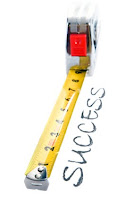In the grant writing process, the final hours are the most stressful. That’s the time when you are conducting your final checks to make sure you have included everything that needs to be included, labeled everything correctly, corrected all errors, calculated everything correctly, and followed the instructions to the letter. It is also one of the most dangerous periods of the grant writing process because it’s easy to miss things in the rush to finish.
Here are a few last minute things to watch out for:
- Re-check all information on required forms. Go through all of the required forms, line by line, to make sure you entered the information correctly. It’s not uncommon to think that completing forms is so simple that you lose focus, and it’s easy to transpose numbers in phone numbers or enter email addresses or tax ID numbers incorrectly.
- Check all budget numbers – then check them again. Just like on your taxes, math errors are among the most common when completing grant application budgets.
- Review the program requirements and make sure they are all addressed (and labeled) in your narrative. If the program you are applying for has absolute and competitive preference priorities, be sure you have addressed them all and labeled your responses as such. Remember, you don’t want the readers to have any trouble at all finding your responses to program requirements.
- Fill in all blanks in your narrative. Sometimes people leave blanks in the narrative for page references or things they plan on filling in later. If you don’t go back through specifically looking for them, it’s easy to miss them.
- If you are submitting your grant electronically, open each section and to make sure the files are attached properly before you submit. I may be paranoid, but I always like to take one last look at every document before I click that “submit” button, just to be sure that the file I intended to attach is actually the one that was attached.
Successful grant writing is all about details. Taking a few extra minutes at the end of the grant writing process to check a few important details can make all the difference.
————————————-
Get a free dowload of our e-book, 12 Secrets of Successful Grant Writers.





